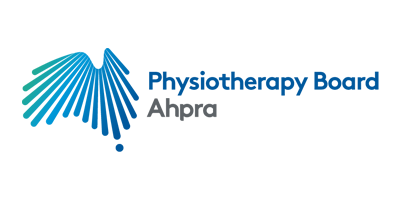Bounty Physio
Back
Physiotherapy To End the Agony of Back Pain
Lower Back Pain:
The lower back, or the lumbar region, bears much of the body’s weight, making it particularly susceptible to injury and wear and tear. Pain in this area can be linked to a variety of issues, including:
- Lumbar sprain: Overstretching or tearing of ligaments due to heavy lifting or sudden movements can lead to a sprain, causing acute lower back pain.
- Herniated disc: The discs in the spine can rupture or bulge, putting pressure on the nerves and causing pain, numbness, or weakness.
- Sciatica: This condition is caused by irritation of the sciatic nerve, which runs from the lower back down to the legs, often resulting in pain, tingling, or numbness in the lower back and legs.
- Degenerative disc disease: Age-related wear and tear can lead to the breakdown of spinal discs, causing chronic lower back pain.
Upper Back Pain:
The upper back, or the thoracic spine, is more stable and less prone to injury than the lower back. However, pain can still occur due to reasons such as:
- Poor posture: Spending long hours hunched over a computer or smartphone can strain the muscles and ligaments in the upper back, leading to pain and stiffness.
- Muscle strain: Overuse or injury can cause the muscles in the upper back to become strained, resulting in pain and discomfort.
- Myofascial pain: This refers to pain that affects the connective tissue (fascia) of the muscles in the upper back.
- Spinal arthritis: This condition involves inflammation of the joints in the spine and can cause pain in the upper back.
The Diagnosis and Assessment Process: Unravelling the Mystery of Your Pain
Your physiotherapist will embark on a comprehensive process to diagnose and understand the root cause of your pain. This process is crucial to developing an effective treatment plan tailored to your specific needs.
Here’s a detailed look at what this process might entail:
Initial Consultation and History Taking
We’ll ask about your symptoms, medical history, lifestyle, and any specific incidents that might have led to the onset of your back pain. We’ll discuss the nature of your pain (sharp, dull, constant, intermittent), any activities that exacerbate or alleviate it, and how it is affecting your daily life. This conversation helps to provide the context of your pain for a more accurate treatment plan.
Physical Examination
This may involve observing your posture, gait, and how you perform certain movements. They will assess your back’s range of motion and might palpate (touch) your back to identify areas of tenderness, muscle tightness, or abnormal curvature.
Special Tests
Depending on your symptoms and the findings from the physical examination, your physio may perform special orthopaedic tests. These tests are designed to provoke your symptoms and help identify specific conditions. For example, the Straight Leg Raise test can help diagnose sciatica in a patient with lower back pain.
Neurological Examination
If your back pain is associated with symptoms like numbness, tingling, or weakness in your limbs, a neurological examination might be necessary. This could involve testing your reflexes, muscle strength, and sensory perception to check for nerve involvement.
Diagnostic Imaging
In some cases, further diagnostic imaging like X-rays, MRI, or CT scans might be required. These are typically reserved for when the physiotherapist suspects specific conditions like a herniated disc, spinal stenosis, or if your pain hasn’t improved with initial treatment.
Assessment Conclusion
After gathering all this information, the physiotherapist will be able to make a clinical diagnosis. They will explain their findings to you, discuss the likely cause of your back pain, and outline a proposed treatment plan.
Every experience with back pain is unique, and so the diagnosis and assessment process can vary. The goal is always to understand the individual’s specific issue and devise the most effective treatment strategy.
Solution: Treatment and Ongoing Management
With a clear understanding of your back issue, we’ll put together a personalised treatment plan to alleviate your pain, restore your mobility, and prevent future occurrences.
Here’s a detailed look at what this might involve:
Manual Therapy
This is a hands-on approach including techniques like massage, mobilisation, and manipulation to relieve pain, improve mobility, and stimulate the body’s healing process. For example, they might use spinal manipulation to relieve lower back pain or soft tissue mobilisation to address muscle tension in the upper back.
Exercise Therapy
This could include specific exercises designed to strengthen your back muscles, improve flexibility, and enhance posture. These exercises might include core strengthening activities, stretching routines, and low-impact aerobic conditioning.
Pain Management Techniques
To help manage your pain, techniques like heat or cold therapy, TENS (Transcutaneous Electrical Nerve Stimulation), or dry needling can be used. These methods can provide temporary relief and make it easier for you to participate in other aspects of your treatment.
Education and Advice
The physiotherapist will educate you about your back condition and how to manage it effectively. They might provide advice on improving your posture, modifying your work or home environment, and incorporating ergonomic principles into your daily activities.
Ongoing Management
Back pain can often be a chronic issue, so ongoing management is crucial. This might involve regular physiotherapy sessions to monitor your progress, adjust your treatment as needed, and address any new or recurring issues. The physiotherapist will also teach you self-management strategies, including exercises you can do at home and lifestyle modifications.
Prevention Strategies
To prevent future back issues, the physiotherapist will provide guidance on maintaining a healthy back. This might include maintaining a healthy weight, regular physical activity, proper lifting techniques, and taking regular breaks from prolonged sitting or standing.
The specific treatments used and their intensity will depend on your individual condition, pain levels, and overall health.
Prognosis: Reclaim Your Life from Back Pain
The prognosis for back pain following physiotherapy treatment is generally positive, but it can vary depending on the nature of the issue, your overall health, and your commitment to the treatment plan.
Here’s a more detailed look at what you can expect:
- Short-Term Relief: Physiotherapy often provides immediate relief from back pain. Techniques like manual therapy and pain management strategies can reduce discomfort and improve mobility. However, it’s important to remember that these are often part of a larger treatment plan, and sticking to the plan is crucial for sustained relief.
- Long-Term Improvement: Over time, consistent physiotherapy can lead to significant improvements in back pain. Exercise therapy strengthens the back muscles, improves flexibility, and enhances posture, all of which can alleviate chronic back pain. Education on lifestyle modifications and self-management strategies also plays a key role in long-term improvement.
- Prevention of Recurrence: One of the key goals of physiotherapy is to prevent future episodes of back pain. By teaching you how to maintain a healthy back and avoid triggers for back pain, physiotherapy can reduce the likelihood of recurring issues.
- Improved Quality of Life: Beyond pain relief, physiotherapy aims to improve your overall quality of life. By restoring your back’s function, it enables you to return to your regular activities, whether that’s playing a sport, doing household chores, or simply sitting comfortably at your desk.
Individual factors can influence the prognosis. These include the severity and duration of your back pain, your age, overall health, and commitment to the treatment plan.
Remember, the journey to a pain-free life is a process, and it’s okay to take it one step at a time. With the right treatment plan and a dedicated approach, you can overcome your back pain and get back to living your life fully.
Don’t Let Back Pain Rule Your Life
Your journey to a pain-free life can start today. At Bounty Physio, we’re committed to providing the highest quality of care in a compassionate, understanding environment.
We’ve helped countless people overcome their back pain, and we’re ready to help you too.
Book your appointment with us today and take the first step towards reclaiming your life from back pain.





